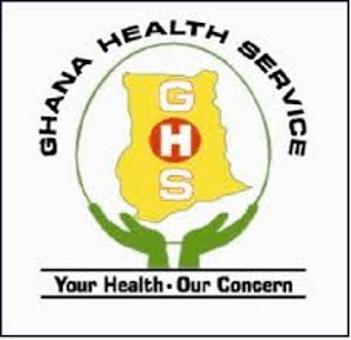Hypertension is the fourth killer of Ghanaians – GHS
 Dr Yao Yeboah, Chairman of the Governing Council, Ghana Health Service (GHS) on Tuesday said hypertension is the fourth killer of Ghanaians across the country and the first killer of patients that attended the Korle-Bu Teaching Hospital.
Dr Yao Yeboah, Chairman of the Governing Council, Ghana Health Service (GHS) on Tuesday said hypertension is the fourth killer of Ghanaians across the country and the first killer of patients that attended the Korle-Bu Teaching Hospital.
He said the health sector concentrates higher percentage of its national budget to address diabetes and hypertension.
He said the disorders were caused by preventable individual lifestyles like excessive drinking of alcohol, lack of exercises, and eating non-healthy diets.
Dr Yeboah said this during a presentation of the GHS’s “Health Promotion (HP) Strategic Plan,” at a media engagement workshop in Accra.
He said a lot of the country’s resources were used in taking care of people who were sick, a step he said should be discouraged, citing a result of a research conducted by the World Health Organisation (WHO) that indicated that 75 per cent of all illnesses recorded across the globe, could be prevented.
Dr Yeboah said: “We cannot totally blame the government for not committing enough resources for health promotion, perhaps part of the blame comes from those in the health sector who do not advocate adequately to the government and the public for them to appreciate the importance of health promotion”.
He noted that the GHS was committed to ensuring that enough work was done to retrain staff of the service to make them more focused and effective, and also ensure that budgets are rather spent on health issues that are non-preventable than on preventable ones.
“As a state, we should collaborate in the years ahead to ensure that unnecessary budgets are not spent to take care of people who are sick at the expense of other areas of the economy that we need funding for,” he said.
Mrs Grace Kafui Annan, Deputy Director of the Health Promotion Department, making a presentation on the HP Strategic Plan said clinical treatment services had largely influenced the under-recognition of Health Promotion as a technical field in Ghana and other places over the years.
She said there had been no policy direction to guide health promotion in Ghana until 2005 when the first health promotion policy was drafted.
However, she noted that the 2005 draft policy had no strategic plan to operationalize it and a framework with indicators to measure the outcomes of health promotion interventions.
Mrs Annan said the GHS in a quest to identify holdbacks to HP programming conducted a research by examining relevant policy documents on health promotion in Ghana and beyond; Strategic Plans and annual reports of the Ministry of Health and GHS, the Communicate for Health project document, and the Regional Strategy document for the WHO’s health promotion.
The goal of the research was to provide sustained health promotion service that would contribute to improving health and well-being in line with the health sector goal of ensuring a healthy and productive population capable of reproducing itself safely.
Mrs Annan disclosed that only 42 out of the 254 districts had Health Promotion Officers as at 2013, and there was irregular and inadequate monitoring and supervision of health promotion activities at all levels in the country.
The Deputy Director said there was inadequate capacity for health promotion for various categories of health staff as well as uncoordinated production of Health Promotion materials and messages.
Also there was low stakeholder involvement at district and community levels, waning spirit of volunteerism partly due to un-equal incentive systems at community level.
Mrs Annan mentioned improved quality of health promotion services; improved healthier communities; increased collaboration and partnerships for health promotion as some of the strategic objectives set to achieve in the Plan by the GHS.
Source: GNA
